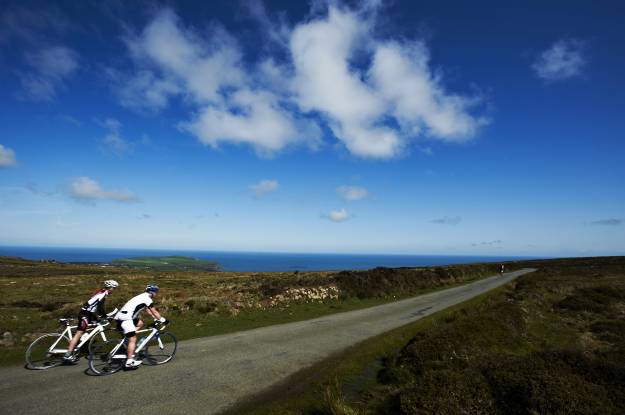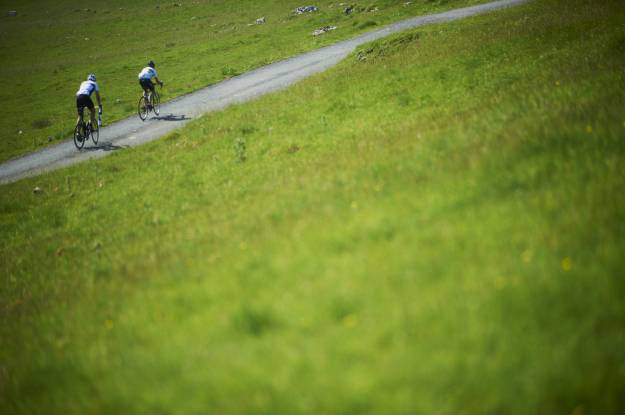Richard Lord, an Edinburgh-based cycling coach, has battled depression for two decades. Here, to mark Mental Health Awareness week, he shares with British Cycling how cycling has helped him to manage his condition.
“With the stresses and strains of everyday life, it’s natural to feel low or down in the dumps from time to time. Depression is a more extreme form of this and can last for months or even years.
Around one in 10 of us will suffer from depression at some point in our lives. I know: I’m one of these people. I’ve suffered from depression for over 20 years. There are many reasons why people become depressed. For me, it is linked to when my mum died when I was 10, but it didn’t really take effect for another six or seven years.
I’d locked myself away in my head, afraid of telling people how I felt - afraid that I would upset them. Thinking I was protecting others, I was damaging myself.
I was already a keen cyclist and I used this to escape. I dreamed of racing the Tour De France, but as I reached my late teens this was never going to happen. I just wasn’t good enough. I fell out of love with cycling. My world, for the second time, had ended.
At this point, I had low self-esteem, a lack of motivation, and I was feeling lethargic and hopeless. At times like this there’s a lot of thinking and analysing going on. Thoughts of ‘I’m a failure’ and that ‘nothing is going to change’.
This leads to physical symptoms of feeling heavy and achy. Getting out of bed became the hardest task, and once up, I was counting down the hours until bedtime. It’s a vicious cycle that spins round and around, constantly dragging you down. It’s a cycle that has to be broken.
Thankfully life doesn’t have to continue like this. For anyone that has depression like symptoms, the first thing to do is see your doctor. They are best-placed to advise on beating depression. One key therapy is exercise - no surprises there.
The benefits of exercise are well documented. But do you know how hard it is to lift your head off the pillow when you’re at your worst? It’s the hardest thing in the world. Therefore, getting active needs a strategy and planning. Cycling, my eternal love and passion, eventually saved me.
Below is what I found works for me and will help anyone; depression or no depression.
- Plan your physical activity a week at a time. Take into account family, work, weather etc
- Check the weather the night before and set your kit out accordingly (or find an alternative exercise if the weather is bad)
- Exercise first thing in the morning - the commute to work is perfect
- If you still feel bad after 15 mins then ok - turn around and head home
- Mindfulness meditations: Focus on pedalling technique, breathing, asking ‘am I in the correct gear?’ etc.
- Wash your kit as soon as you get home while you feel good
- Tell someone about your depression and how they can support you
- Eat something healthy once you’ve finished exercising
- Ride with friends or family at least once a week
It’s not easy to break the cycle and it does take time. The key is to be easy on yourself and persist in making small changes. Believe me, it’s worth it. Just ask my family.
Richard’s blog is available here










